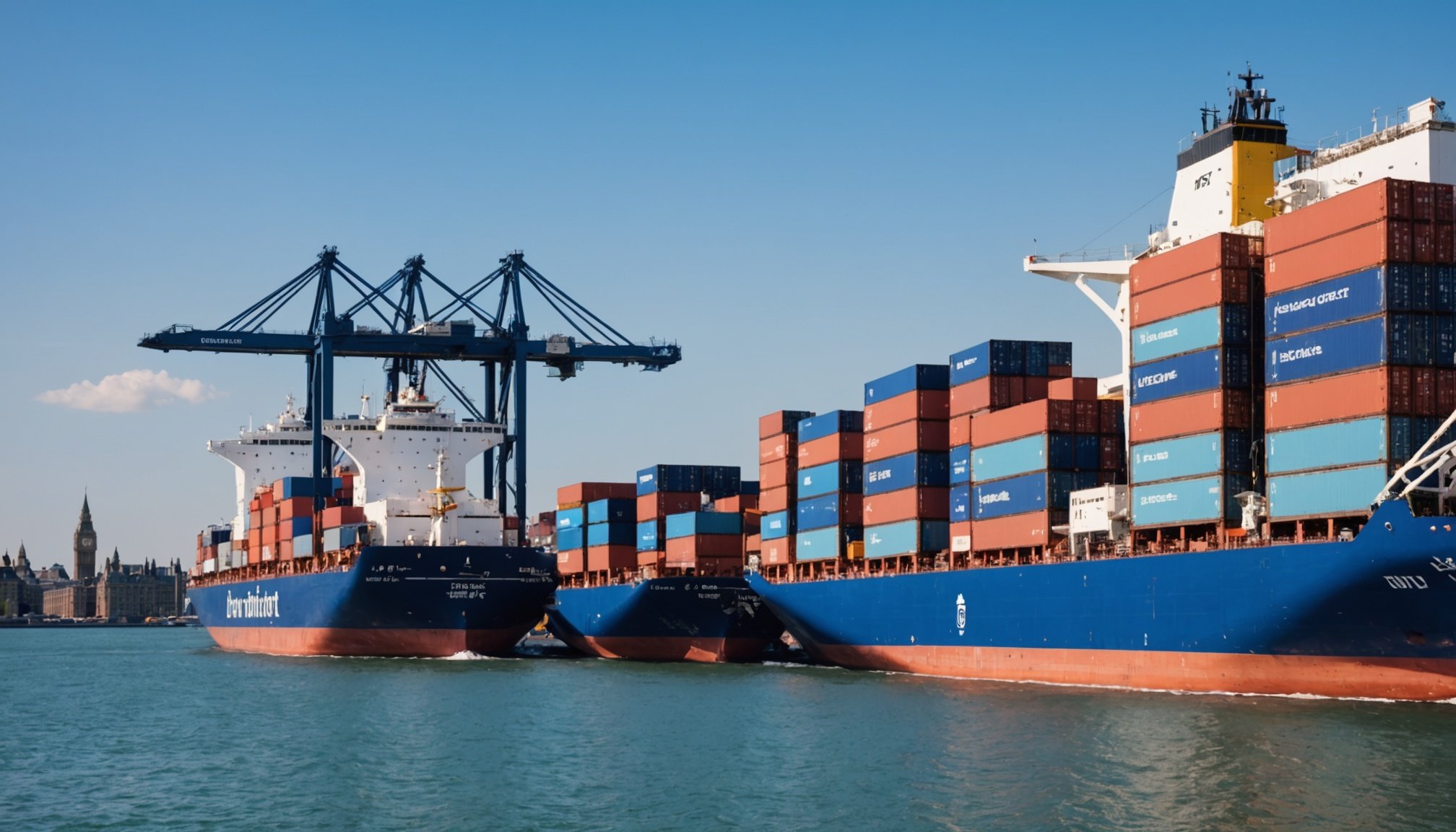Overview of Legal Considerations in Third-Party Logistics
In the realm of third-party logistics, understanding the legal aspects is crucial for businesses, particularly in the UK. The legal framework governing logistics can significantly influence operational effectiveness, impacting everything from partnerships to shipping efficiency and costs.
Legal aspects form the backbone of any successful logistics operation. Compliance with various regulations ensures that businesses avoid penalties while maintaining smooth operations. Key legal areas affecting these collaborations include contracts, liability, and environmental considerations. Contracts dictate terms between parties involved, securing interests and setting expectations. Liability laws protect businesses in cases of damages or losses during transportation, while environmental regulations ensure sustainable practices are upheld.
This might interest you : Navigating legal responsibilities: a complete guide to the competition act 1998 for uk businesses
Regulations not only affect shipment processes but also have a substantial effect on cost structures. For instance, adherence to safety and environmental standards may require investment in compliant vehicles or processes, affecting profit margins. Yet, these regulations can also drive businesses towards more efficient practices, offering potential cost savings in the long term.
To navigate these waters, businesses should seek expert advice and invest time in understanding the legal landscape. By doing so, they can optimize their logistics operations, ensuring both compliance and efficiency.
Also to read : Mastering the legal maze: key strategies for uk companies to obtain a financial services license
Compliance Regulations for International Shipping
Navigating the compliance landscape in international shipping can be complex. The United Kingdom, like many other countries, has stringent regulations that govern the import and export of goods. Key laws in the UK include the Customs and Excise Management Act and the Trade Facilitation Program, both of which aim to streamline trade while ensuring compliance.
Adhering to customs regulations is crucial for businesses involved in international shipping. Non-compliance can result in hefty fines, shipment delays, or even the seizure of goods. Companies must stay informed about the latest changes in these regulations to avoid costly errors.
Common compliance pitfalls often include incorrect tariff classifications, undervaluation of goods, and failing to provide necessary documentation. For instance, misclassifying products can lead to incorrect duty payments, impacting the entire supply chain. To avoid such issues, companies should regularly audit their shipping processes and train staff on compliance matters.
To enhance compliance, businesses should consider using automated systems for document management and leverage expert advice where necessary. By doing so, they can ensure smooth operations and foster trust with international partners, ultimately facilitating more effective and efficient international shipping.
Drafting Effective Contracts with Logistics Providers
Navigating the intricacies of contract law when working with third-party logistics companies is essential for protecting your business interests.
Key Contract Clauses to Include
A well-constructed contract should include clear terms and conditions covering liability, delivery schedules, and service-level agreements. A comprehensive legal drafting process will help prevent misunderstandings and disputes. Ensure clauses clearly define the responsibilities of each party, providing a solid foundation for your logistics arrangements.
Negotiation Tips for Contracts
During negotiations, aim to balance the interests of both parties. Start by identifying non-negotiables, but be open to trade-offs. Allow room for flexibility, particularly regarding potential changes in logistical needs. Using clear communication helps avoid ambiguity and fosters mutual understanding.
Recommended Practices for Amendments
Amendments are part of the contractual lifecycle. For effective amendments, establish a standardised process for proposing and reviewing changes. This ensures adaptations accommodate evolving requirements without compromising the contract’s integrity. Regularly update the contract to reflect operational realities, always with mutual agreement.
Implementing these strategies will mitigate risks and ensure a structured relationship with your logistics provider, resulting in smoother operations and optimised legal protections.
Liability Issues in Third-Party Logistics
Navigating liability in third-party logistics (3PL) involves understanding numerous types of liability typically present in logistics contracts. These include product liability, where responsibility arises from damage or loss of goods during transit, and contractual liability, which concerns breaches arising from the terms agreed upon in logistics agreements. Both require a robust risk management strategy to ensure all parties involved protect their interests adequately.
Risk management in this context often involves strategies such as:
- Comprehensive insurance coverage to safeguard against unforeseen damages or losses.
- Detailed contract clauses delineating responsibilities and liabilities clearly.
- Regular audits and checks to ensure compliance with agreed terms and safeguard against breaches.
An in-depth look into past case studies highlights how liability disputes in logistics can unfold. For example, disputes often arise when a 3PL provider fails to deliver goods on time, breaching the contract and leading to financial losses for the client. Another case might involve miscommunication on liability concerning unexpected damages during shipment, sparking costly legal battles. By learning from these scenarios, companies can better adapt their logistics contracts and risk management practices to preemptively address potential liability issues.
Customs Issues and Responsibilities
Navigating the landscape of customs compliance is crucial for businesses engaged in international trade. It starts with a thorough understanding of shipping documentation requirements. Every shipment crossing borders demands meticulous documentation, including invoices, packing lists, and certificates of origin. These documents ensure that goods are classified accurately for duty calculations and meet the import regulations of the destination country.
Businesses bear specific responsibilities, such as ensuring that all necessary documents are completed accurately and submitted on time. However, logistics providers also play a critical role. They often handle customs clearance, verifying that shipments adhere to all regulations. A collaborative approach between businesses and logistics providers can enhance efficiency and reduce errors.
Failure to adhere to proper customs documentation and compliance can lead to significant consequences. Delays at the border are common, which can disrupt supply chains and impact business operations. Moreover, customs violations can result in penalties, fines, or additional inspections. In severe cases, repeat violations can damage a company’s reputation or lead to legal troubles. Thus, maintaining vigilant customs compliance is essential for smooth international transactions.
Practical Guidelines for Compliance
Establishing effective compliance guidelines within an organisation is crucial to navigate the complex landscape of regulations. These guidelines not only ensure legal adherence but also streamline operations, mitigating potential legal risks.
Developing Internal Compliance Protocols
To begin with, developing robust internal protocols involves careful consideration and documentation of all applicable laws and regulations. This includes creating a clear framework that aligns with logistics and industry standards. An organised approach, perhaps by forming a compliance team, helps in continually monitoring and updating these protocols to reflect any regulatory changes.
Training Staff on Legal Requirements
Once protocols are in place, it is essential to train staff on these legal requirements. Effective training empowers employees, ensuring they understand their responsibilities. Incorporating a mix of workshops, online courses, and hands-on sessions can make learning more engaging. It also fosters a culture of compliance within the organisation, leading to consistent adherence.
Utilizing Technology for Compliance Monitoring
Lastly, utilizing technology aids in better compliance monitoring. Today’s digital tools offer various features, such as automated alerts for policy breaches and process tracking. Such technology simplifies the compliance process, making adherence more efficient and reducing human error. Integrating these tools into daily operations provides a broader view of compliance across departments.
Frequently Asked Questions (FAQs)
Navigating the world of logistics law can be challenging. Below are some common concerns and answers to help you better understand the landscape.
What are the compliance requirements for logistics companies?
The compliance requirements vary depending on the country or region. Generally, they involve adherence to transportation regulations, import/export laws, and safety standards. It’s crucial to stay updated on any changes to ensure compliance and avoid penalties. Regular audits and training can help maintain compliance.
How can logistics companies address common legal concerns?
Being proactive is essential. Establishing strong partnerships with legal experts and staying informed about changes in the law can mitigate risks. Developing a comprehensive internal compliance program is a best practice to address these concerns.
Are there misconceptions about logistics law?
Yes, it’s a common misconception that logistics laws are static. However, regulations can frequently change, impacting operations. Keeping abreast of these changes through reliable sources and legal advisories is critical for operational continuity.
By understanding these common concerns and seeking expert advice, logistics companies can confidently navigate legal requirements, ensuring smooth operations and legal compliance.











